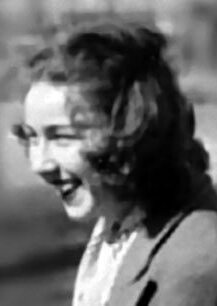
Author, Apologist, Feisty, Insightful Portrayer of Human Nature
Flannery O’Connor
When discussions at a famous literary gathering turned towards the Holy Eucharist, one well-known writer commented that the Eucharist was a symbol, and a pretty good one at that. Flannery O’Connor stood up, and with a shaky voice, responded, “Well, if it’s just a symbol, to hell with it!” This was one of many moments in which this perfectionist and imaginative writer would rise to defend her Catholic faith, which she had known from her childhood. Mary Flannery O’Connor was born in 1925 in Savannah, Georgia, and was an only child. Her parents sent her to a Catholic school where she was taught by the Sisters of Mercy. Even in her childhood, Mary was a most peculiar student and refused to attend the children’s Mass with the rest of her class, as she did not consider herself a child. She carried this attitude into playdate parties hosted by her parents, where she declined to play with the other children since she would rather read by herself. To obtain time alone, she would share stories from Grimm’s Book of Fairy Tales with the other children in order to scare them off. It usually worked.
In 1945, she began to attend the State University of Iowa, where she enrolled in a writer’s workshop. It was there that she began her writing career and later obtained a Masters in Fine Arts. Her teachers were enchanted by her presence and her prose. Sitting in the back of the classroom, silent, she seemed to say more with her subtle smile than the talkers did with their endless commenting at every class. Her southern drawl peppered her speech, and even her own teacher initially had trouble understanding her. But on paper, her words were vibrant, fiery, and inspired, much like the author herself. Her short stories portrayed the reality of human weakness, and often made the audience uncomfortable. Yet they were stories of revelation, compassion, and supernatural grace, despite their seemingly grotesque exterior. “It is almost impossible to write about supernatural grace in fiction,” she once said. “We almost have to approach it negatively. As to natural grace, we have to take that the way it comes – through nature. In any case, it [grace] operates surrounded by evil.” Flannery, both a gifted apologist and a bit of a perfectionist, was constantly revising and editing her writing until she was satisfied.
“The truth does not change according to our ability to stomach it.”
In 1951, she and her mother moved to Andalusia, the family farm, after Flannery began to exhibit the symptoms of lupus. Although her health slowed down her work, she refused to remain a hermit. She continued her writing and frequently made visits into town for social events with her mother and attended Mass regularly. Most of her time was spent at Andalusia where she devoted the mornings to writing and then entertained guests and cared for her flock of peacocks in the afternoons. Flannery died at the age of 39 in 1964, leaving behind the novels “Wise Blood” and “The Violent Bear It Away,” along with several collections of short stories.
Photo attribution: Cmacauley, CC BY-SA 3.0 <https://creativecommons.org/licenses/by-sa/3.0>, via Wikimedia Commons

